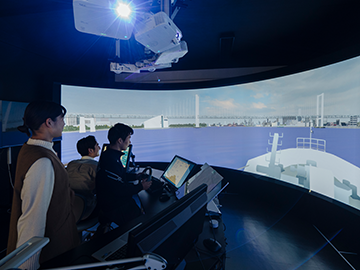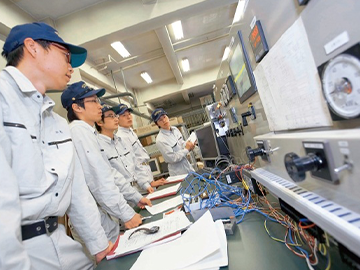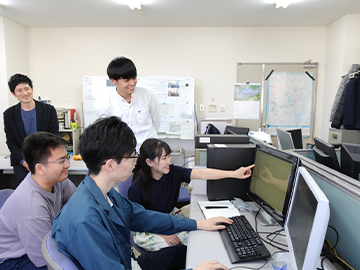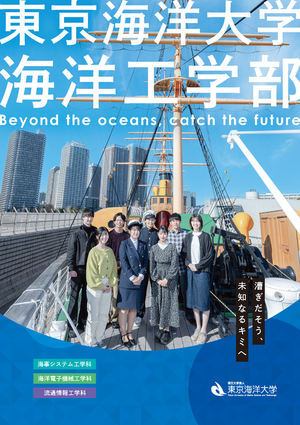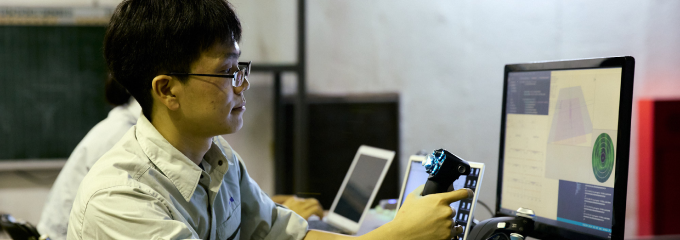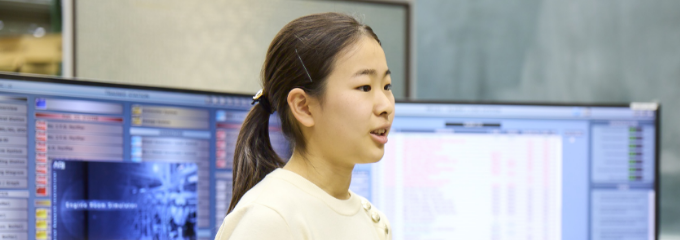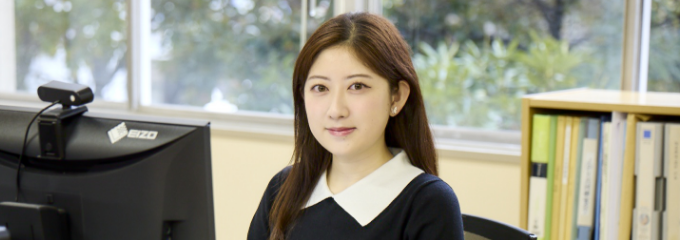bob博彩公司_申博体育在线-投注*官网 version
The Faculty of Marine Engineering has established the Department of Maritime Systems Engineering, the Department of Marine Electronics and Mechanical Engineering, and the Department of Distribution Information Engineering. Comprehensive subjects include mathematics, physics, chemistry, information, and various foreign languages; Systematically organize the study of specialized subjects.
The Department of Maritime Systems Engineering and the Department of Marine Electronics and Mechanical Engineering will also create curricula that will enable them to obtain the qualifications of 3rd class marine engineer (navigation) and 3rd class marine engineer (engineering), respectively.
2. Policies regarding educational content, educational implementation methods, and evaluation methods
(1) Broad perspective and cultural background
(Learning content) To equip students with a wide range of perspectives, abilities, and cultural background that form the basis of international exchange.
(Study method) Students will study a wide range of general subjects and specialized introductory subjects, mainly in their first and second years. In addition, in order to smoothly enter university education, we will have first-year students complete introductory education.
(Method of evaluating learning outcomes) Objectively evaluate the degree of acquisition of a wide range of knowledge and cultural background through examinations, reports, deliverables, etc. according to the characteristics of the subject.
(2)Communication skills
(Learning content) To help students acquire communication skills backed by a wide range of knowledge and an international perspective, which are necessary for engineers.
(Learning method) Through a variety of foreign language subjects, experiments, practical training, and seminar report writing, graduation thesis writing, and graduation thesis presentation, students will acquire diverse communication skills that will enable them to collect and disseminate necessary information. Let them study.
(Method of evaluating learning outcomes) The level of communication skill acquisition will be objectively evaluated through reports, graduation thesis presentations, etc., depending on the characteristics of the subject.
(3)Specialized knowledge/problem-solving ability
(Learning content) To acquire specialized knowledge about the sea, ships, logistics, etc., and the ability to utilize this knowledge to solve problems.
(Study method) Students will systematically study introductory and specialized subjects, from basics to applied subjects, to fully acquire a wide range of specialized knowledge. We will have students study subjects such as experiments, practical training, seminars, and graduation research that will help them develop problem-finding, problem-solving, and creativity skills.
(Method of evaluating learning outcomes) Objectively evaluate the degree of acquisition of specialized knowledge and problem-solving ability using tests, reports, deliverables, etc., depending on the characteristics of the subject.
(4)Practical instruction/leadership
(Learning content) To help students acquire the practical leadership skills and leadership required as leaders in society.
(Learning method) Have students study subjects such as experiments, practical training, seminars, and graduation research that can foster leadership and the ability to exercise leadership and leadership in a group.
(Method of evaluating learning outcomes) Depending on the characteristics of the subject, the level of practical instruction and leadership skills will be objectively evaluated through reports, graduation thesis presentations, graduation thesis, etc.
(5) Ability to make decisions and act on one's own
(Learning content) To acquire the ability to proactively tackle challenges, think logically, and make accurate judgments and actions.
(Learning method) Have students study subjects such as experiments, practical training, seminars, and graduation research that will help them develop the ability to make decisions and take action on their own.
(Method of evaluating learning outcomes) Depending on the characteristics of the subject, the degree to which students have acquired the ability to make decisions and act on their own will be objectively evaluated using reports, graduation theses, etc.




